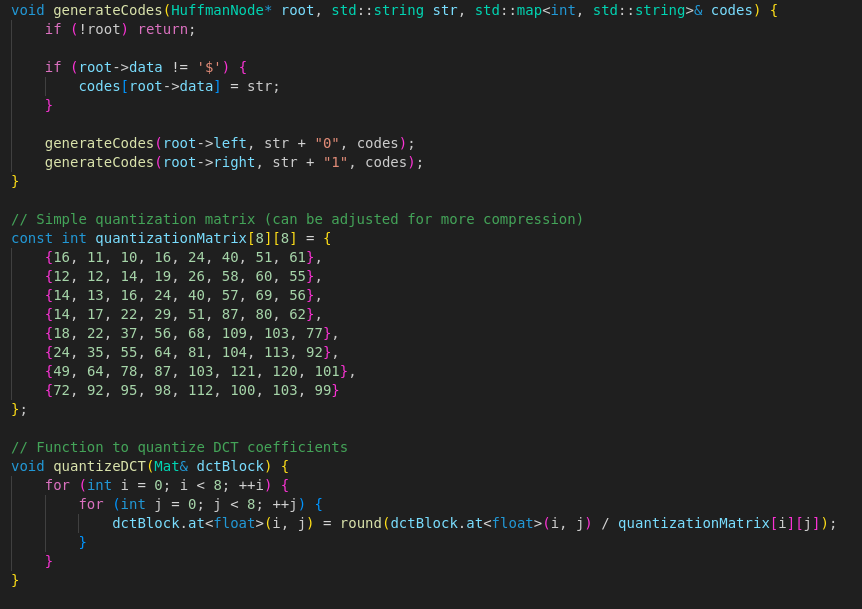Why Math Is Essential In Computer Science And Other Related Courses

Computer science is often thought of as a field solely focused on coding and software development. However, when you choose to study the field, you will meet many mathematics subjects, each containing equations that are more complicated than the relationship you are in.
But all this math plays a crucial role in computing. Understanding the vital role math plays in computer courses can deepen appreciation for this often-overlooked foundation. Here’s why math is indispensable in computer science education and how it impacts various aspects of the field.
1. Math is the Backbone of Algorithms
Algorithms are the building blocks of computer science, forming the logic behind every piece of software. Mathematics helps students learn how to develop algorithms that solve problems efficiently. From sorting algorithms to data encryption, math provides the tools to optimize code for performance. Key concepts such as calculus, discrete mathematics, and linear algebra are essential for understanding complex algorithms and analyzing their efficiency in terms of time and space.
For example:
- Calculus helps with understanding and optimizing processes in machine learning.
- Discrete Mathematics deals with structures like graphs, sets, and logical statements, which are critical for programming and developing efficient algorithms.
2. Improves Problem-Solving Skills
Mathematics enhances logical thinking, a vital skill in problem-solving. It trains students to break down complex problems into manageable parts and systematically approach solutions. Computer science courses that integrate mathematical problem-solving methods enable students to tackle challenges with a logical mindset, which can often lead to innovative and efficient solutions.
In programming, a well-structured mathematical approach can help developers debug code, optimize processes, and even anticipate potential issues. Learning math builds a strong foundation for tackling these challenges confidently and systematically.
3. Crucial for Data Structures and Databases
Data structures are fundamental to programming. They define how data is stored, accessed, and modified. Mathematics, especially topics in discrete math, probability, and combinatorics, provides the framework for understanding data structures like arrays, stacks, queues, linked lists, and trees. Knowledge of math also helps in understanding the efficiency of different data structures, which is crucial for developing high-performance applications.
Database design, often a part of computer courses, also uses mathematical logic and relational algebra. For instance, SQL (Structured Query Language) uses set theory concepts, and databases often rely on mathematical operations to handle complex queries, ensure data integrity, and manage relationships between different datasets.
4. Integral to Machine Learning and Artificial Intelligence
Machine learning (ML) and artificial intelligence (AI) are some of the fastest-growing fields in computer science, and they are heavily reliant on math. For those interested in these areas, a solid grounding in statistics, linear algebra, calculus, and probability is essential.
Math is used in ML to:
- Analyze Data: Statistics is fundamental for analyzing data, making predictions, and developing probabilistic models.
- Create Models: Linear algebra is crucial for working with vectors and matrices in neural networks and deep learning.
- Optimize Models: Calculus, especially derivatives, is used to optimize the performance of models by minimizing error rates.
These mathematical concepts help computer scientists develop algorithms that can "learn" from data, classify information, and even make decisions based on prior data patterns.
5. Essential for Cyber Security
Math plays a critical role in cryptography, the science of securing data, which is a vital component of cybersecurity. Cryptography relies on number theory, algebra, and discrete math to create encryption algorithms that protect sensitive information from unauthorized access. Computer science students need a firm understanding of these concepts to design, analyze, and implement secure systems.
For instance:
- Public Key Encryption relies on prime numbers and modular arithmetic to secure communication.
- Hash Functions used in data integrity checks and digital signatures employ mathematical transformations to generate unique identifiers for data files.
6. Improves Logical Reasoning and Analytical Skills
Math courses encourage students to think logically and analytically, which are indispensable skills in computer science. Programming languages, databases, and even software development rely on logic, sequencing, and conditions — all of which are inherently mathematical.
The rigorous logical reasoning developed through studying mathematics helps computer scientists make precise, systematic decisions in writing and analyzing code. Whether debugging an error, improving an algorithm, or building a complex system, these analytical skills make problem-solving more efficient and robust.
7. Vital for Graphics and Visualization
Computer graphics, an exciting area in computer science, relies heavily on geometry, trigonometry, and linear algebra. These areas of math help create 3D models, animations, virtual reality environments, and even video game simulations. In these applications, mathematical transformations translate, rotate, and scale objects to produce realistic visual effects.
For example:
- Trigonometry is used to calculate angles and positions in games or graphic animations.
- Linear Algebra helps manipulate points in space to produce visuals on 2D screens.
These principles are fundamental for students who aspire to work in game development, animation, or virtual reality, where understanding the underlying math can elevate design and function.
8. Supports Advanced Fields like Quantum Computing
As computing progresses, quantum computing is emerging as a groundbreaking field that leverages the principles of quantum mechanics to process information. Quantum computing relies on complex mathematical concepts from linear algebra, probability, and complex numbers to represent and manipulate quantum bits (qubits) in ways that classical computers cannot.
Understanding the math behind quantum theory allows computer scientists to explore the potential of quantum algorithms, which could revolutionize fields such as cryptography, data analysis, and more.





















Comments